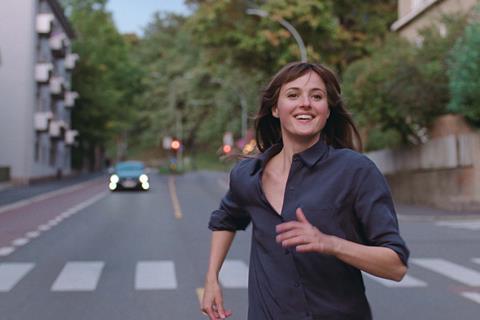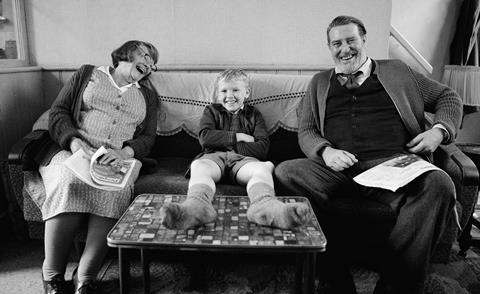Major US titles dominate the Bafta best film longlist, and mainstream fare squeezes out some acclaimed UK indies in the outstanding British film list. Screen talks to awards campaigners about how this year’s longlists have turned out.

The second year of the revamped processes for the Bafta Film Awards has produced a set of longlists that has yielded a fair degree of support from UK awards campaigners — as well as more than a few yelps at the domination of US titles and a notably mainstream list for outstanding British film.
Bafta introduced the longlisting stage as one of a large number of tweaks to voting in the awards — after a wide-ranging review in response to the disappointing nominations for the 2020 awards, wholly dominated by white performers and male directors. The impact was immediately visible last year, when 16 of the 24 nominated actors were non-white, and four of the director nominees were women.
Last year, documentary was the category most singled out for criticism, with commentators lamenting a rather mainstream line-up of longlisted titles absent major contenders such as Time and Boys State, as well as formally adventurous films including Gunda and Notturno.
This year, it is the outstanding British film longlist that is raising most eyebrows, thanks to a notable mainstream skew — not just with No Time To Die, which was expected to land here, but also House Of Gucci, Cyrano, Cruella (viewed by many as not the most evidently British production) and, most surprising of all, Matthew Vaughn’s The King’s Man. Add in a number of biographical period titles — including Operation Mincemeat, Munich - The Edge Of War, The Colour Room, The Electrical Life Of Louis Wain and The Duke — and the 20-strong British list is looking decidedly conventional in aspect.
That would be less of an issue were it not for the exclusion of some hugely admired UK independent films. “What happened to Joanna Hogg’s The Souvenir: Part II?” asks one awards campaigner, speaking to Screen anonymously. “That is a really notable omission when you consider it’s a film that was acclaimed at Cannes, got five-star reviews and topped the annual critics poll in Sight & Sound.”
This campaigner expresses surprise at the appearance of The King’s Man, but suggests No Time To Die is an appropriate inclusion. “This is an exceptional year, and that was a film the industry needed, and ended a whole dynasty of James Bond. I don’t begrudge it being there at all.”
Accentuating some of the positives, “If you are involved with Ali & Ava, Benediction, Boiling Point, to be on that list is really excellent.” Boiling Point and Ali & Ava are both titles that flourished at the British Independent Film Awards, earning multiple nominations. So too did The Souvenir: Part II and Sean Durkin’s The Nest — the latter being another disappointing Bafta omission for Picturehouse Entertainment.
While Hogg’s picture missed the British film list, the filmmaker was herself longlisted in director — evidently benefiting from the fact this category is determined by the votes of the director chapter, rather than the much broader cohort voting in British film. Perhaps relevantly, gender parity is mandated for the director longlist of 20. The top seven male and female choices of the voters are longlisted, and the longlisting jury then adds three of each gender from the next batches of voter picks. Perhaps that longlisting jury had an impact on the international scope of the director longlist, which includes Ryusuke Hamaguchi for Drive My Car, Paolo Sorrentino for The Hand Of God, Audrey Diwan for Happening, Céline Sciamma for Petite Maman and Julia Ducournau for Titane.

Citing also the inclusion of Petite Maman in original screenplay and The Worst Person In The World’s Renate Reinsve in actress, one awards campaigner comments, “It’s really nice to see foreign-language films moving into mainstream categories — that felt quite heartening.” The Hand Of God made five longlists overall.
While it is refreshing that five of the director nominees this year are longlisted for films that are not in English, the list for best film is entirely English language — in contrast to last year when Thomas Vinterberg’s Another Round was longlisted, and 2020 when Bong Joon Ho’s Parasite earned a Bafta nomination in best film (and three other categories).
British titles are similarly in short supply on the best film longlist — and only one (Kenneth Branagh’s Belfast) is a true UK independent. The other two British-qualifying films are No Time To Die and House Of Gucci.
Adam McKay’s Don’t Look Up, which has divided critics and social-media commentators but scored massive audiences on Netflix, made it onto 15 longlists — level with Steven Spielberg’s West Side Story, and just ahead of Belfast and Jane Campion’s The Power Of The Dog (both with 14). House Of Gucci is on 13 longlists, Dune and No Time To Die on 12, Licorice Pizza on 11 and Last Night In Soho on 10.
Acting categories
For the 2021 awards, the Bafta longlists produced a refreshingly diverse line-up of actors in the four performance categories, with 25 out of 60 being non-white, and that was reflected in the jury-chosen nominations: 16 out of 24 being non-white actors. This year, the choices of voters in the performance chapter, augmented by the picks of the longlisting jury, have produced less in the way of ethnic diversity: only 16 out of 60 longlisted names in the acting categories are non-white.
Last year, the four juries nominating in the acting categories failed to find room to include both Carey Mulligan in Promising Young Woman and Olivia Colman in The Father — provoking some head-scratching, especially in the US. This year, presumably in response to the fallout from those outcomes, the top two choices in each acting category are automatically longlisted — and the juries will then add four names to each, selected from the longlists.
Naturally, speculation has already begun regarding which actors are already nominated by virtue of topping the longlist votes for their category. For lead actor, the three awards campaigners Screen spoke to variously cited The Power Of The Dog’s Benedict Cumberbatch, King Richard’s Will Smith and The Tragedy Of Macbeth’s Denzel Washington as likely among the top-two voter picks, with Tick, Tick… Boom!’s Andrew Garfield and No Time To Die’s Daniel Craig also earning mentions.
For actress, The Lost Daughter’s Olivia Colman is the consensus choice, with Spencer’s Kristen Stewart also favoured — although “that film seems to be fading a bit in the race, apart from for her”, says one campaigner.
Another campaigner reckons After Love’s Joanna Scanlan might be among the top-two choices in actress, despite the film being a small UK indie, and not from a major studio or streamer. “I haven’t spoken to a single person who hasn’t mentioned her performance,” she explains.
For supporting actor, “I thought it would be Richard Ayoade for The Souvenir: Part II, but he’s not even on the longlist,” says one campaigner, who adds that The Power Of The Dog’s Kodi Smit-McPhee and House Of Gucci’s Jared Leto are his bets for topping the vote so far. Everyone agrees that Coda’s Troy Kotsur is a very likely nominee in this category — by virtue of jury choice even if his first-round votes do not get him automatically nominated. “And either of the guys from Belfast,” suggests one insider — meaning Jamie Dornan or Ciaran Hinds.

“I would put a bet on Judi Dench,” says one campaigner regarding a likely vote-topper — and thus automatic nominee — in supporting actress, while her Belfast co-star Caitriona Balfe was the choice of another. The Lost Daughter’s Jessie Buckley is another strong contender. Boiling Point’s Vinette Robinson and Mass’s Ann Dowd are considered performers likely to appeal to the jury, and so is The Tragedy Of Macbeth’s Kathryn Hunter.
Foreign language and docs
This year’s Bafta longlist for film not in the English language overlaps with the equivalent Oscar shortlist in the case of major contenders — The Hand Of God, Drive My Car, Flee, The Worst Person In The World, Compartment No. 6, Lamb, I’m Your Man and A Hero — but it also diverges by including seven titles not on the Oscar shortlist.
Among these, Titane and Bad Luck Banging Or Loony Porn were respectively France and Romania’s submission to the international feature Oscar category, and did not prevail with US Academy voters. Bafta-longlisted Paris, 13th District, Petite Maman, Parallel Mothers, Riders Of Justice and documentary The Most Beautiful Boy In The World were not submitted to the Oscars.
“One of the talking points with people I’ve spoken to is that the foreign-language categories for Bafta and Oscar seem to be increasingly different,” says one awards campaigner. By giving voters a free rein, rather than limiting them to the submissions by individual countries, Bafta has produced a list that better reflects true enthusiasms. While France missed out at the Oscars, the inclusion here of films by Julia Ducournau, Céline Sciamma and Jacques Audiard, as well as Audrey Diwan making the director list for Happening, “shows the real strength of French cinema”, he adds.
As for documentary, voted by a large opt-in chapter, opinions differ regarding a list that is heavy on music titles (Summer Of Soul, The Sparks Brothers, Tina, The Velvet Undergroundand Billie Eilish: The World’s A Little Blurry) as well as celebrity subjects or stories with built-in audience recognition (Becoming Cousteau, The Lost Leonardo, The Real Charlie Chaplin, Lady Boss: The Jackie Collins Story). The Most Beautiful Boy In The World concerns the actor who played Tadzio in Luchino Visconti’s Death In Venice, while The Rescue documents the world-famous recovery of the young football team trapped in a flooded cave in Thailand.
Even more so than with foreign-language films, the documentary list diverges strongly with the equivalent Oscar shortlist: only five titles overlap, from a possible 15. Missing are acclaimed films such as Robert Greene’s Procession (about survivors of sexual abuse), Jessica Kingdon’s Ascension (about work culture in China) and Rintu Thomas and Sushmit Ghosh’s Writing With Fire (about crusading female journalists in India) — all Oscar-shortlisted and all submitted for this year’s Baftas.
“I think the criticism of last year’s Bafta documentary category — both in the longlist and nominations — was that it was a bit populist,” says one campaigner. “I’m not seeing that so much here. Cow is a very good film, and I wouldn’t call it easy. Flee is excellent. It’s a nice mix.”
However, “disappointment” is the response of another campaigner, who points to the absence of more challenging films with global subject matter. “There’s a lot of fame in this list, and players with big spends,” she says. “It’s getting more and more mainstream. It felt like that last year, and it’s still going in that direction.”
In the next round, a jury will select the nominees in documentary — an innovation for this year, although the top two in the first round are automatically nominated. Now it is over to this jury to come up with a set of nominees that will silence the critics of Bafta’s documentary category. All will be revealed when the nominations are announced on February 3.

























No comments yet